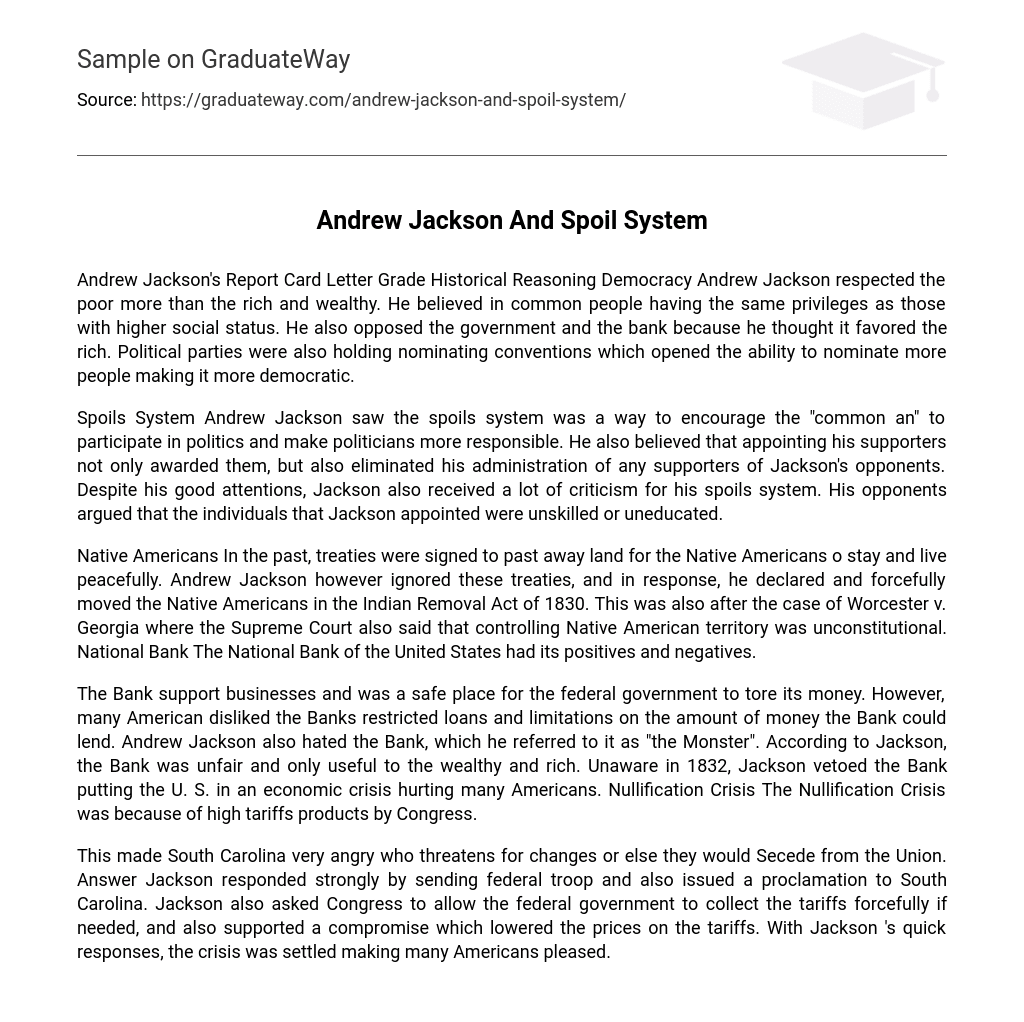Andrew Jackson’s Report Card Letter Grade Historical Reasoning Democracy Andrew Jackson respected the poor more than the rich and wealthy. He believed in common people having the same privileges as those with higher social status. He also opposed the government and the bank because he thought it favored the rich. Political parties were also holding nominating conventions which opened the ability to nominate more people making it more democratic.
Spoils System Andrew Jackson saw the spoils system was a way to encourage the “common an” to participate in politics and make politicians more responsible. He also believed that appointing his supporters not only awarded them, but also eliminated his administration of any supporters of Jackson’s opponents. Despite his good attentions, Jackson also received a lot of criticism for his spoils system. His opponents argued that the individuals that Jackson appointed were unskilled or uneducated.
Native Americans In the past, treaties were signed to past away land for the Native Americans o stay and live peacefully. Andrew Jackson however ignored these treaties, and in response, he declared and forcefully moved the Native Americans in the Indian Removal Act of 1830. This was also after the case of Worcester v. Georgia where the Supreme Court also said that controlling Native American territory was unconstitutional. National Bank The National Bank of the United States had its positives and negatives.
The Bank support businesses and was a safe place for the federal government to tore its money. However, many American disliked the Banks restricted loans and limitations on the amount of money the Bank could lend. Andrew Jackson also hated the Bank, which he referred to it as “the Monster”. According to Jackson, the Bank was unfair and only useful to the wealthy and rich. Unaware in 1832, Jackson vetoed the Bank putting the U. S. in an economic crisis hurting many Americans. Nullification Crisis The Nullification Crisis was because of high tariffs products by Congress.
This made South Carolina very angry who threatens for changes or else they would Secede from the Union. Answer Jackson responded strongly by sending federal troop and also issued a proclamation to South Carolina. Jackson also asked Congress to allow the federal government to collect the tariffs forcefully if needed, and also supported a compromise which lowered the prices on the tariffs. With Jackson ‘s quick responses, the crisis was settled making many Americans pleased.





